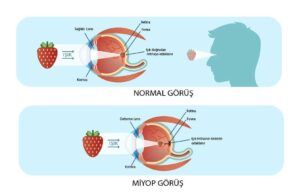
health developments
Cholesterol and Heart Disease: How High Cholesterol Contributes to Cardiovascular Risk
Cholesterol is a waxy, fat-like substance that is found in all cells of the body. It is essential for the production of hormones, vitamin D, and the maintenance of cell membranes. However, too much cholesterol in the blood can increase the risk of heart disease.
The human body produces cholesterol naturally, but it can also be found in food, particularly in animal products such as meat, eggs, and dairy. When there is an excess of cholesterol in the bloodstream, it can build up in the walls of arteries, forming plaques. These plaques can narrow and harden the arteries, leading to a condition called atherosclerosis. This condition reduces blood flow to vital organs, including the heart, and can increase the risk of heart attack, stroke, and other cardiovascular diseases.
Cholesterol is transported through the bloodstream in two types of lipoproteins: low-density lipoprotein (LDL) and high-density lipoprotein (HDL). LDL cholesterol is often called “bad” cholesterol because it can contribute to plaque buildup in the arteries. HDL cholesterol, on the other hand, is often referred to as “good” cholesterol because it helps remove LDL cholesterol from the bloodstream.
A high level of LDL cholesterol, along with other risk factors such as high blood pressure, smoking, and diabetes, can significantly increase the risk of heart disease. The American Heart Association recommends that adults over the age of 20 should have their cholesterol levels checked every four to six years.
Treatment for high cholesterol typically involves lifestyle changes such as eating a healthy diet, exercising regularly, quitting smoking, and maintaining a healthy weight. In some cases, medication may be necessary to help lower cholesterol levels.
Statins are a type of medication commonly prescribed to lower LDL cholesterol levels. They work by inhibiting an enzyme that the liver uses to produce cholesterol. Other medications such as bile acid sequestrants, niacin, and fibrates can also be used to lower cholesterol levels.
In conclusion, cholesterol is an essential substance in the body, but too much of it can lead to the buildup of plaques in the arteries and increase the risk of heart disease. Understanding the importance of monitoring cholesterol levels and making lifestyle changes to keep them in check can significantly reduce the risk of cardiovascular disease. If you are concerned about your cholesterol levels, speak with your doctor to discuss your options for prevention and treatment.








